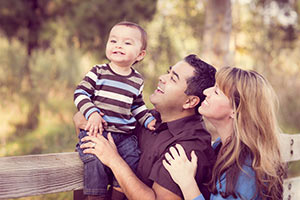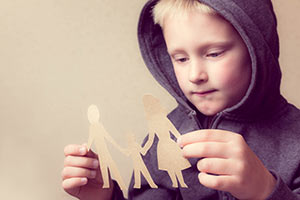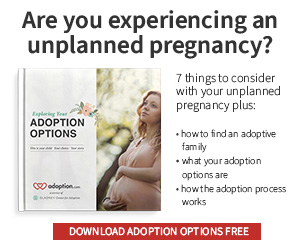ADOPTION IN
Utah

Choosing to adopt a child in Utah is a big step in the adoption process. For those facing an unplanned pregnancy in Utah, the Adoption.com team can assist in finding financial support, adoption information, and legal help. If you are hoping to adopt a child into your own family, there are plenty of resources and options on Adoption.com to assist with the process.
Adoption Near Me

Considering Placing Your Baby or Child for Adoption? You can learn more here or call an adoption counselor 1-800-236-7898.
Domestic Infant Adoptions can be completed through a Utah adoption agency or adoption attorney. Click here for a directory of adoption service providers in Utah.
International Adoptions must be completed through an adoption agency or adoption attorney. Find an international adoption service provider here.
Foster Care Adoptions in Utah can be completed through the Department of Human Services (801.538.4100).
Gallery of children waiting to be adopted.
Join the Utah adoption group in our community!
Looking for more resources in your area? Check out the Adoption Directory for a listing of adoption professionals in your state.
I’m considering placing my baby or child for adoption.
Pregnant and have questions? We can help answer your questions by telling us what works best for you.
Are you pregnant and considering adoption? Do you need help getting started?
Click here and help us understand what your needs are and the preferences you have. We can help you get started.
Utah Adoption
By: Rebekah Lewis
There are several different types of adoption in Utah including the following: domestic infant, waiting for the child (i.e., from foster care), international, independent, open, closed, private agency, and public agency. Some public and private agencies require you to attend a series of classes to learn about the adoption process and emotional and behavioral issues that adopted children may experience. In many cases, you must complete these classes before the agency will begin the home study process.
The home study process varies by agency and type of adoption. It should be an educational and self-evaluative process as well as a way for the social worker to get to know you and your family, help you determine what age of child would best fit into your home, whether a sibling group would work well, and what other important characteristics you would be willing to accept in a child. The home study process will include some or all of the following:
– A series of individual and/or joint interviews with each prospective parent in the home.
– A visit to your home to ensure you offer a safe environment and meet state licensing standards.
– Medical reports from your physician.
– Proof of employment/ability to financially support a child.
– Checks for any criminal record, including the state child abuse registry.
– References from friends and associates.
– Autobiographical statements.
– Psychological evaluation (this is usually only required if the applicant has a mental illness).
– A family picture book or video to present to the birth mother, waiting child, or overseas agency.
Typically, these steps result in the writing of a home study report that reflects the social worker’s findings. This report is then used to introduce your family to other agencies to assist in matching you with a child or sibling group. On average, the home study process takes three to six months to complete.
After the home study is complete, the social worker assigned to your case will begin looking for the right child or sibling group that would be a good fit for your family. When they find a child, you will be given extensive information about them so that you can decide if that child would be a good fit. Some social workers will encourage you to be active in the search for the right child; be sure to always be on the same page with the social worker so they have all of your same information and can help you.
When you adopt through the Division of Child & Family Services, there are no placement or application fees. At the time of adoption finalization, you may be responsible for the attorney’s fees and court costs that range from $1,200-$1,800. In most cases, an adoption subsidy is available to cover the preexisting psychological, medical, and dental needs of the child. Legal fees may also be reimbursed through the Utah adoption subsidy program.
When a child cannot return to his/her family of origin, the birth parents’ rights are legally terminated. If a relatives’ home is not available and no other adoptive placement has been identified within 30 days after the child’s goal changes from returning home to adoption, then a child is listed on a photo listing website. This will make families wanting to adopt aware of what children are available in Utah, hopefully providing permanency much quicker for the child who is waiting. You may view a child’s profile, and if you would like more information or would like to talk with the child’s caseworker, you may fill out an inquiry form and send it electronically to them. In turn, the caseworker will contact you within two to four weeks.
Here are some myths and facts surrounding adoption in Utah, and how it could affect you.
Am I too old to adopt?
Utah adoption law requires a person to be ten years older than the child he or she adopts. That being said, the Division of Child and Family Services (DCFS) may not be willing to place a 2-year-old with a couple that is in their late 50s or 60s unless they are a relative to the child. But parents in this age group are great for teens and school-age children.
What happens to kids that don’t get adopted?
When children are around the age of 16 years of age, DCFS has a program called “Transition to Adult Living.” This program works to help the youth learn the skills they will need to be on their own. At age 18 or when they graduate from high school, the youth are emancipated from the system. Usually, they have already been living in an apartment with a caseworker checking in to assist when necessary. Many youth age out of the system and are not emotionally prepared to be independent. Youth who age out of foster care have higher rates of unplanned pregnancy, incarceration, homelessness, and death. They need to have the backup of a real family.
I heard that kids in foster care have a lot of problems, is that true?
Children who are in foster care waiting for an adoptive home have been removed from their homes because of the issues of their biological parents. Almost always they have suffered from some form of abuse and/or neglect. These children are resilient and sometimes have a hard time learning to trust anyone after what they have been through, but like all of us, they want and need the love that a family can provide.
If I foster a child, I’ve heard that it takes years before I can adopt him or her. Is this true?
Currently, the average time a child spends in foster care before he is adopted is 18.4 months. The courts try to move as quickly as possible, but they also need to allow time for the biological family to make the necessary changes to be reunified with their children. It is a hard balance between the rights of the biological parents and the need for permanency for the children. Unless a case goes on appeal finalization of an adoption, an adoption can occur as soon as parental rights are terminated as long as the child has been in the adoptive home for at least six months.
The only children available for adoption are older teens.
Many of the longest waiting children are indeed older teens, but the average age of a child in Utah that is adopted from foster care is 5.2 years of age; once a child reaches the age of nine, their chance to be adopted diminishes dramatically. To adopt a child under the age of nine, families must first be foster parents, and if the child does not return home, then the foster family can adopt. It’s called legal risk adoption or foster to adopt.
I’ve heard it costs a lot of money to adopt. Is this true?
Most adoptions do cost a lot, but adopting from foster care is nearly free. The home study and training are paid for by the Division of Child and Family Services (DCFS)—so basically by the taxpayers. The family must pay for all of the things necessary to get their home ready for another child, and they also need to pay an attorney to finalize an adoption. But they will get attorney fees reimbursed. What most people don’t know is that the child will also have a Medicaid card until they are 18 years old. DCFS will also help the family cover costs associated with the child’s special needs that are not covered by Medicaid. Part of the difference in cost is children in foster care are waiting for families, and in most other types of adoption, families are waiting to adopt the few infants that are available here and or abroad. The state covers basic adoption costs so that children do not linger in foster care without a family.
I’m single—can I adopt?
Yes. Many times the Division of Child & Family Services (DCFS) feels that a certain child may do better in a single-parent home. DCFS by policy gives preference to a family with two parents, but they really are looking for a home that they feel can meet the child’s needs.
Here’s a beautiful example of a family brought together by adoption:
The Williams family loves playing games together, and the room around their kitchen table just got a bit tighter since they adopted 12-year-old Dominic.
“I happened to see Wednesday’s Child, and Dominic was the Wednesday’s Child,” said Terrie Williams, Dominic’s mom. He was a little boy with special needs, but his biggest need was a loving home “He was bowling and a sweet all-around kid,” Williams said.
Terrie couldn’t get the image of Dominic off her mind.
“I was pretty excited from the get-go,” she said. “I’m not so sure about my husband.” The couple recently adopted three girls, and Karl Williams wanted to make sure they could properly provide for a boy with autism. When he met Dominic in person, he knew this little boy was meant to be his son. “He likes to do a lot of things with me,” he said. “It was a change from here with the girls who wanted to curl my hair.”
Karl and Terrie want other families to know the joy that comes when you open your home to a child in foster care. “It was free-flowing,” she said. “It was just a really easy process for him and us,” she said. The Williams agree they would do the whole thing over again if they needed to. Now, Dominic’s picture has a permanent place on the mantle among all the other family photos and a permanent place in the hearts of his mom and dad.
Adoption in Utah is a very practical and comprehensive process for anyone interested who qualifies and has the desire and capabilities to foster a Utah child in need of a loving and supportive home and family to call his or her own.
Utah Adoption Guide
The information contained on this website is for educational purposes only and is not intended to be a substitute for professional legal advice. Always seek the advice of a licensed and qualified professional. While the content of this website is frequently updated, information changes rapidly and therefore, some information may be out of date, and/or contain inaccuracies, omissions, or typographical errors.
Can I Adopt in Utah?
You must be at least 21 years old to adopt. You can be single, married, or divorced. You can own or rent a home. Your income may be small or large. There are three separate agencies that license parents hoping to foster, adopt, or foster/adopt. After the agency is contacted parents must complete a home study in or to be approved.
What Adoption Regulations Exist in Utah?
Advertising: An attorney, physician, or other person may assist a parent in locating a person interested in adopting the parent’s child, or locating a child to be adopted. However, no payment, charge, fee, or reimbursement of any kind may be made for that assistance. Advertising is not allowed by attorneys, physicians, or other persons. § 62A-4a-602(1); 62A-4a-602(2)(b)
Relinquishment: Birth mothers cannot consent to an adoption until at least 24 hours after the birth of their child. Consent from any other person can be given at any time. Consent is irrevocable once signed. § 78B-6-125-126
Birth parent expenses: The following adoption related expenses are permitted: legal, maternity, medical, hospital, counseling, living, and travel expenses. § 76-7-203
Post-adoption contact agreements: Contact agreements are not legally enforceable.
Birth father rights: Unmarried fathers wishing to receive notice of adoption proceedings may file their information with the Office of Vital Records paternity registry.
Finalization: The average time between TPR and adoption finalization in 2014 was 8 months.
Is Adoption Assistance Available in Utah?
Can I adopt a Child from another country?
It is always possible to adopt a child from another country, even if you live in the United States. Children under 18 adopted from a Hague Convention country entering the U.S. with an IH-3 visa may automatically receive U.S. citizenship.
Children adopted from a non convention country must qualify as orphans before receiving U.S. citizenship. When U.S. citizens finalize an adoption abroad, they must apply to the USCIS for an IR-3 visa for the child. An IR-3 visa classifies the child as an immigrant and may provide the child with citizenship upon arrival in the States.
Utah gives full effect and recognition to adoptions finalized abroad in compliance with U.S. and international law. Readoption is an option but not a requirement in Utah. Parents wishing to receive a US state birth certificate for their child must submit a readoption or validation of a foreign adoption decree.
State Contacts
Gallery of children waiting to be adopted: https://adoption.com/photolisting?page=1&search_type=region&range=UnitedStates
State subsidy contact person:
Ms. Marty Shannon
Department of Human Services
Division of Child and Family Services
195 North 1950 West
Salt Lake City, UT 84116
Phone: 801-540-0833
Fax: 801-538-3993
Email: mshannon@utah.gov
Summary
Adoptions in Utah can be completed through the Department of Human Services.
You must be at least 21 years old. You can be single, married, or divorced. You can own or rent. Your income may be small or large. Parents must complete a home study.
While advertising is prohibited (by attorneys, physicians, or other persons), any person may assist a parent in locating a person interested in adopting the parent’s child, or locating a child to be adopted. However, no payment may be made for that assistance.
Birth mothers must wait 24 hours after the birth of their child to give consent, while any other person may do so at any time. Legal, maternity, medical, hospital, counseling, living, and travel expenses are permitted.
Contact agreements cannot be legally enforced. A paternity registry does exist for unmarried fathers. The average time between TPR and adoption finalization in 2014 was 8 months.










